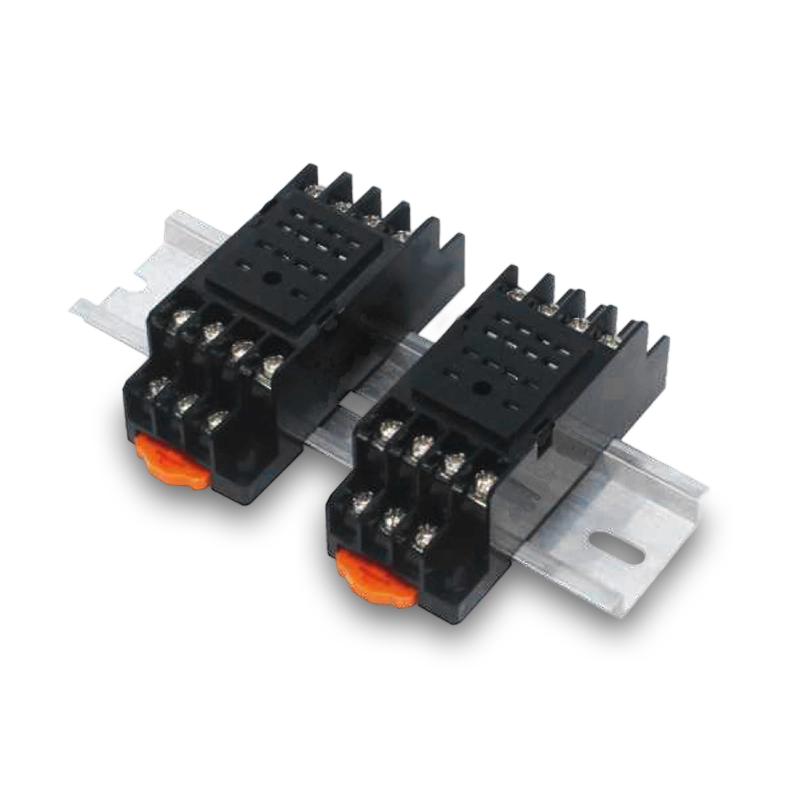As the adoption of electric vehicles (EVs) continues to grow worldwide, the components that support safe and efficient charging are becoming increasingly important. Relays play a crucial role in ensuring that EV charging systems operate reliably. In particular, miniature high power relays and HVAC start relays are key components that help manage the high currents and switching requirements in electric vehicle infrastructure.

Miniature high power relays have become an essential part of modern EV charging stations. These relays are designed to handle significant currents while maintaining a compact size, allowing for efficient space utilization in charging units. Their ability to switch large loads with small energy consumption makes them suitable for both residential and commercial charging setups.
In EV chargers, miniature high power relays are often responsible for controlling the flow of electricity to the vehicle's battery. During charging, these relays must manage high-voltage currents safely while ensuring that the connection is stable. Any delay or malfunction in the relay can interrupt the charging process, potentially pilot to reduced efficiency or even safety hazards. By incorporating relays designed for high power applications, manufacturers can improve reliability and reduce the risk of overheating or electrical faults.
Another important type of relay in EV charging systems is the HVAC start relay. While these relays are traditionally used in heating, ventilation, and air conditioning systems, they are also applied in electric vehicles to manage thermal conditions during charging. Batteries generate heat while charging, and proper thermal management is critical for maintaining battery longevity and performance.
HVAC start relays help regulate fans, compressors, and other components that maintain good temperatures within the charging system or the vehicle itself. By providing reliable switching for these thermal management circuits, HVAC start relays ensure that components are only activated when necessary. This prevents unnecessary energy consumption and helps protect sensitive electronics from overheating.
Safety is a central concern when designing relays for EV charging systems. Both miniature high power relays and HVAC start relays must meet stringent standards for electrical insulation, heat resistance, and mechanical durability. This ensures that they can operate under continuous cycles without risk of failure.
In addition to handling high currents, these relays need to withstand voltage fluctuations and environmental conditions such as humidity, vibration, and temperature bads. Testing and quality control are therefore critical to ensure consistent performance. Well-designed relays contribute to the overall safety of EV charging systems, reducing the likelihood of short circuits, electrical fires, or other hazards.
Recent developments in relay technology have focused on improving response time, reducing energy loss, and extending operational life. Miniature high power relays now incorporate materials and designs that lower contact resistance, which reduces heat generation during switching. This is particularly valuable in EV charging stations where long charging periods require continuous current flow.
Similarly, HVAC start relays have seen improvements in contact durability and noise reduction. Quieter operation is beneficial for both residential and public charging stations, providing a more comfortable environment for users. Advances in compact designs also allow these relays to be integrated into smaller spaces, helping manufacturers create more efficient and flexible EV charging units.
While miniature high power relays and HVAC start relays are essential in EV charging, they also have applications in other areas of electric vehicles. High power relays can be used in battery management systems, power distribution units, and electric drivetrains. HVAC start relays support climate control and cooling systems, which are crucial for maintaining overall vehicle performance.
The continued development of these relay technologies ensures that electric vehicles remain safe, efficient, and reliable. By focusing on performance, durability, and compact design, relay manufacturers contribute to the evolution of electric mobility while addressing the specific needs of charging infrastructure.
Relays play a vital role in supporting the growing EV market. Miniature high power relays provide reliable switching for high-current circuits, while HVAC start relays manage thermal conditions to protect sensitive components. Together, they enhance the safety, efficiency, and longevity of EV charging systems. As electric vehicle adoption expands, ongoing improvements in relay technology will remain essential for meeting the demands of modern charging infrastructure.
Quick Contact
Yueshang Innovation Park, Wengyang Street, Yueqing City, Zhejiang, China
Pages
Stay In Touch
If you have any questions or need help, feel free to contact with our team.